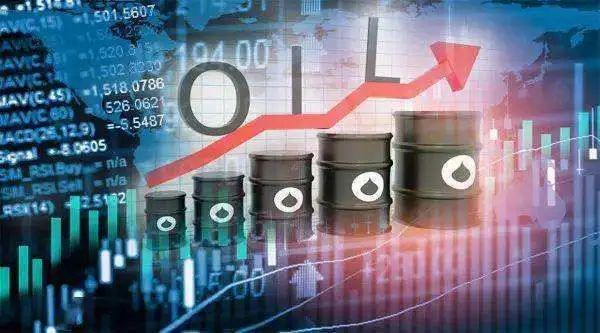
In the context of the complex global economy, the crude oil market has always been one of the focal points of global attention. Recently, WTI October crude oil futures prices closed up $1.39, a 1.87% increase, and ultimately closed at $75.91 per barrel. This fluctuation not only reversed the previous two consecutive declines, but also sparked widespread discussions in the market about geopolitics, supply and demand relationships, and the prospects for global economic recovery. This article will analyze in depth the reasons for the fluctuations in the crude oil market and the underlying deep-seated impacts from a geopolitical perspective.
Geopolitical factors have always played a pivotal role in the crude oil market. The rise in WTI crude oil futures prices this time is largely driven by supply concerns in Libya and Iraq. As one of the important oil producing countries in Africa, the instability of the domestic situation in Libya has always been a significant factor affecting global crude oil supply. Recently, Libya's crude oil production has once again been disrupted, leading to a decrease in market expectations for the country's future crude oil exports, which in turn has pushed up international oil prices.
At the same time, Iraq's crude oil supply is also facing challenges. Although Iraq is an important oil producing country in the world, the complexity of its domestic political situation and the problem of outdated infrastructure have always constrained the increase in crude oil production. Recently, Iraq's crude oil export facilities have suffered multiple attacks and malfunctions, further exacerbating market concerns about Iraq's crude oil supply. This dual supply pressure has caused a brief supply shortage in the international crude oil market, thereby driving up oil prices.
The geopolitical game not only directly affects the supply of crude oil, but also transmits to the price level through market sentiment and expectations. Against the backdrop of an unstable global economic recovery, any news that may affect crude oil supply could trigger a severe market reaction. The rise in WTI crude oil futures prices this time is a direct reflection of market concerns about supply from Libya and Iraq.
In addition, geopolitical factors indirectly affect oil prices by influencing investors' risk preferences and capital flows. When geopolitical tensions escalate, investors often choose safe haven assets to avoid potential risks. For example, in history, the United States has imposed sanctions on Libya, leading to the paralysis of the country's oil trade and affecting its crude oil exports. For Iraq, the United States has also launched wars in the country and intervened politically and economically after the war. These sanctions and intervention measures may have an impact on Iraq's crude oil production and exports, thereby affecting the crude oil futures market.
Faced with the complex and ever-changing crude oil market, investors and related enterprises should adopt proactive response strategies to address potential risks and challenges. Firstly, investors should closely monitor the supply side dynamics and consumption trends in the international market, as well as policy factors that may affect price fluctuations, and flexibly adjust their investment portfolios to cope with market fluctuations. Secondly, relevant enterprises should optimize their supply chain and inventory management to cope with potential supply disruptions and price fluctuations. At the same time, actively exploring diversified investments and the development of new energy to cope with the challenges of declining demand for traditional oil.
The rise in WTI October crude oil futures prices is the result of a combination of geopolitical factors, supply and demand relationships, and the prospect of global economic recovery. In the foreseeable future, the crude oil market will continue to be influenced and constrained by various factors. Therefore, market participants should remain calm and rational, closely monitor market dynamics and policy changes to make the right decisions and responses.

On January 4th local time, Trump warned India that if it does not limit its purchase of Russian oil, the United States will continue to raise tariffs on Indian products. Trump's latest warning sent shockwaves through the Indian financial market in just one day.
On January 4th local time, Trump warned India that if it do…
In October 2025, the US trade deficit narrowed unexpectedly…
According to the British media CoinJournal, recently, due t…
In January 2026, US President Trump once again set his sigh…
Europe is facing a crucial strategic choice: In the face of…
On New Year's Day 2026, BMW China announced a "systematic v…